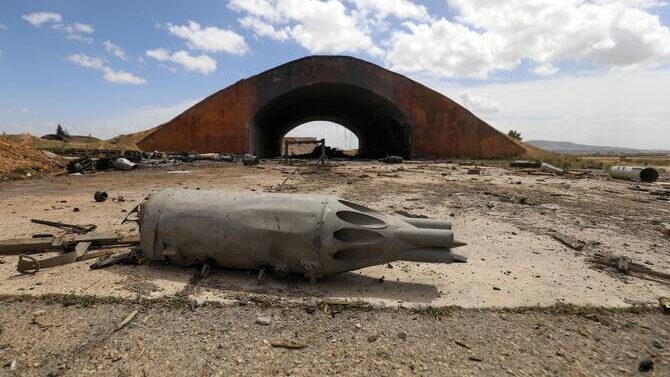Saudi Arabia Condemns Israeli Airstrikes on Syria, Urges International Action
In a strong and clear message to the international community, Saudi Arabia has condemned the latest Israeli airstrikes on Syrian territory. The Kingdom called the attacks a dangerous escalation that threatens the stability of Syria and the entire Middle East. The Saudi Ministry of Foreign Affairs expressed deep concern over the strikes, which resulted in numerous civilian and military casualties, and urged the United Nations Security Council to hold Israel accountable for its ongoing violations of international law.
According to Syrian officials, the Israeli attacks targeted multiple key areas including the capital, Damascus, and the Hama Military Airport. These strikes caused significant material damage and claimed several lives, both among the military and civilian population. Syrian air defense systems attempted to intercept the attacks but were reportedly overwhelmed by the intensity and coordination of the Israeli assault.
The Saudi statement emphasized the importance of respecting Syria’s sovereignty and protecting the rights of its people. “These repeated violations cannot be justified under any circumstances,” said a representative from the Kingdom’s foreign ministry. “They are direct assaults on a fellow Arab nation’s independence and a blatant violation of international norms.”
This latest round of Israeli airstrikes comes amid a volatile regional backdrop. Since the regime change in Syria last December, Israel has ramped up its military activities in the area, citing concerns about Iranian-backed militias gaining ground near its borders. However, regional powers argue that Israel is using this justification to carry out unilateral aggression that threatens wider regional peace.
Egypt, Jordan Join Saudi Arabia in Condemnation
In a show of Arab solidarity, Egypt and Jordan also issued strong condemnations of the Israeli attacks.
The Egyptian Ministry of Foreign Affairs released a statement calling the airstrikes a “clear breach of international laws and agreements.” Egypt urged major international players, especially those in the United Nations Security Council, to pressure Israel into halting what it described as “illegal military operations on sovereign Arab land.” The statement also called on Israel to withdraw from the Syrian territories it currently occupies, referencing the 1974 Disengagement Agreement which was signed following the Yom Kippur War.
Jordan, which shares a border with both Syria and Israel, echoed similar concerns. The Jordanian Ministry of Foreign Affairs and Expatriates reaffirmed its support for Syria’s sovereignty, unity, and territorial integrity. It stressed the importance of non-intervention in internal affairs and reminded the international community that continued Israeli violations could lead to dangerous consequences for the entire region.
“The ongoing attacks pose a serious risk not only to Syria but also to regional security,” said a spokesperson for the Jordanian ministry. “They undermine diplomatic efforts aimed at restoring peace and stability in the Middle East.”
Growing Regional Concern and Calls for Peace
Other Arab countries, including Iraq and Lebanon, have also voiced support for Syria in the wake of the Israeli strikes. These nations are increasingly alarmed by what they see as Israel’s pattern of aggressive behavior toward its neighbors. While Israel has maintained that its operations are aimed at curbing the influence of Iran and preventing weapons transfers to Hezbollah, critics argue that the cost in civilian lives and regional instability is far too high.
Analysts note that the situation is particularly dangerous given the fragile political and humanitarian state of Syria. After more than a decade of civil war, the country is struggling to rebuild. Millions of people remain displaced, infrastructure is shattered, and the economy is in ruins. Continued foreign attacks, especially from a military power like Israel, only worsen the crisis and reduce the chances of a long-term resolution.
Saudi Arabia’s call for international action reflects a broader desire among Arab nations to stop further bloodshed and to restore Syria’s role as a stable and peaceful state in the region. The Kingdom has been actively involved in recent regional peace efforts, including restoring diplomatic ties with Tehran and pushing for de-escalation in various conflict zones across the Arab world.
International Response and Next Steps
So far, the global reaction to the Israeli strikes has been mixed. While some Western powers have expressed concern, few have issued direct condemnation of Israel. The United States, Israel’s key ally, has not made a strong public statement regarding the latest strikes but has previously supported Israel’s right to self-defense. Meanwhile, the United Nations has called for restraint from all sides and reiterated the importance of respecting state sovereignty.
Saudi Arabia and its Arab allies are now urging the UN Security Council to take concrete steps. These include investigating the strikes, publicly condemning the actions, and implementing accountability measures to prevent further violations.
“We cannot allow these dangerous escalations to continue unchecked,” the Saudi Foreign Ministry stated. “If the international community fails to act now, the consequences will be severe—not just for Syria, but for the entire region and beyond.”
As the conflict continues to evolve, all eyes are now on the diplomatic stage. Will the United Nations respond with a firm resolution? Will international pressure be enough to stop Israel’s military campaign in Syria? Or will the region slide further into instability?
Do follow gulf magazine on Instagram
for more information click here



